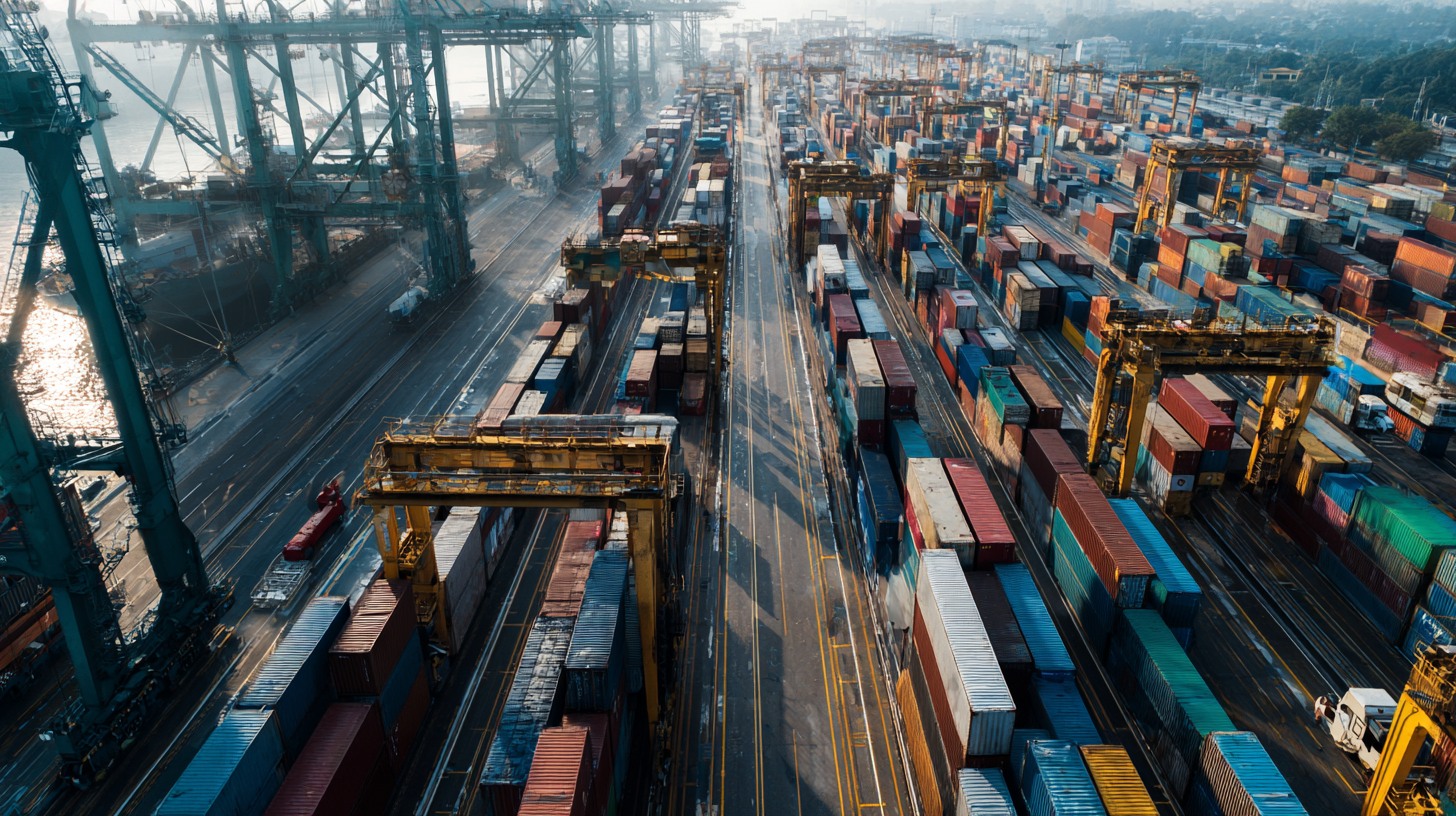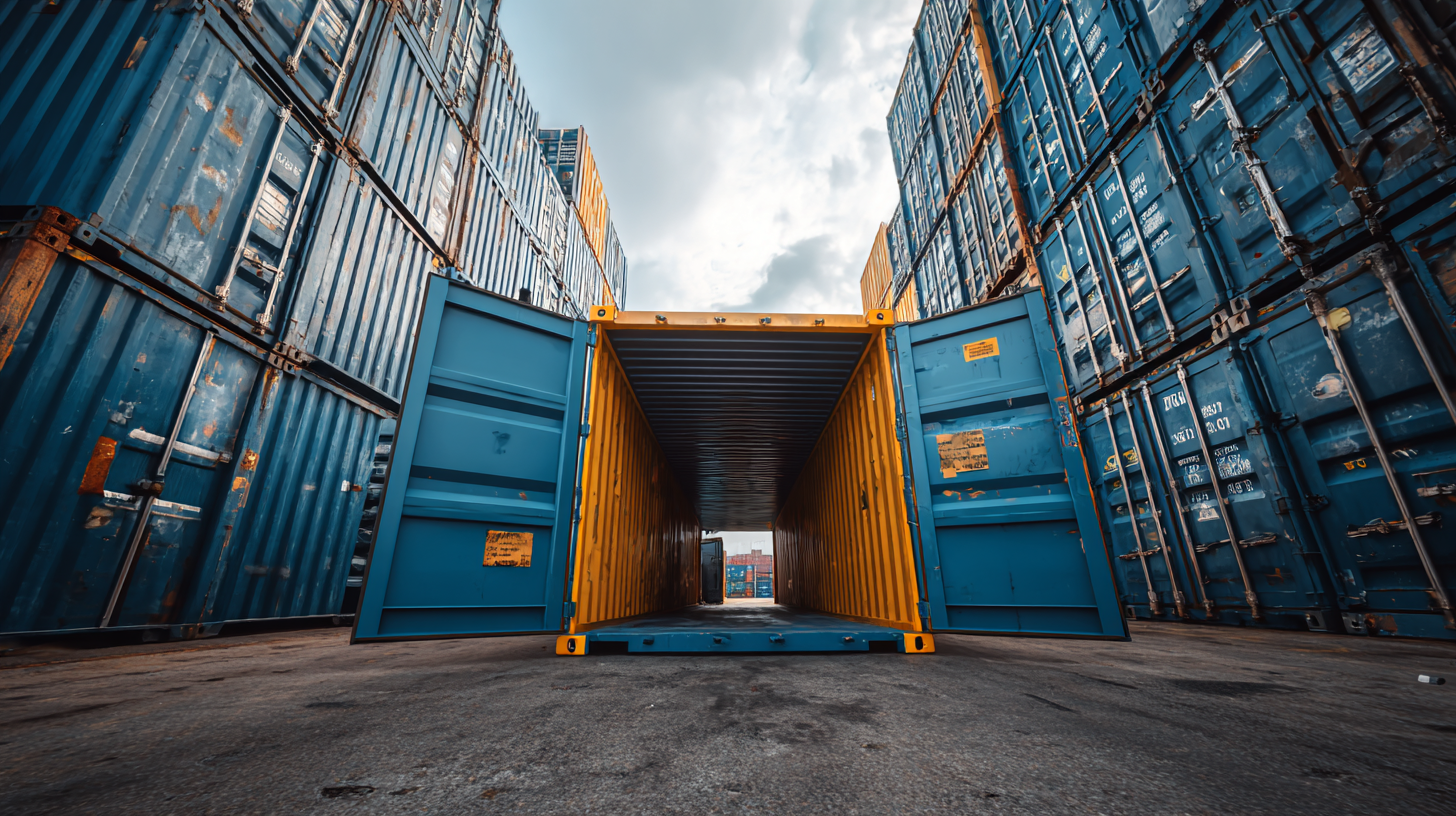Garage Openers - PFC CONTROLS | Miami, Gate Operators, Sliding Gate, Swing Gate, Intercoms, Turnstiles, Bollards, Barrier gate
- GATE ACCESS
- PEDESTRIAN ACCESS
- CONTACT US
- Main Menu
- GATE ACCESS
- PEDESTRIAN ACCESS
- CONTACT US
Navigating Global Trade Standards for Best Turn Style Gates Import and Export
In the ever-evolving landscape of global trade, the import and export of specialized products like Turn Style Gates presents unique challenges and opportunities. Recent data from the Global Trade Report indicates that the market for access control technologies, including turn style gates, is projected to reach $4.5 billion by 2025, reflecting a CAGR of 9.5%. However, navigating the intricate web of international trade standards remains a critical concern for manufacturers and distributors. Compliance with varying safety regulations, customs requirements, and quality certifications can significantly impact the efficiency of supply chains. Consequently, understanding these global trade dynamics is essential for businesses aiming to thrive in this competitive environment, ensuring that their turn style gates meet not only local but also international compliance mandates.

Understanding Global Trade Standards for Turn Style Gates
When it comes to the import and export of turn style gates, understanding global trade standards is crucial for ensuring compliance and optimizing operations. These standards govern various aspects such as product quality, safety, and environmental considerations. Companies must familiarize themselves with international regulations, including ISO certifications and local market requirements, to successfully navigate the complexities of global trade.

In addition to compliance, awareness of trade standards can significantly impact the competitiveness of turn style gate products. By adhering to these guidelines, manufacturers can enhance their credibility and appeal to a wider customer base.
It is essential to conduct thorough research on the standards applicable in both exporting and importing countries, as discrepancies can lead to costly delays and penalties. Engaging with trade experts or consultants can also provide valuable insights and streamline the process of aligning products with global expectations.
Key Benefits of Importing Best Turn Style Gates for Businesses
Importing high-quality turn style gates can offer numerous advantages for businesses in today's rapidly changing global market. These gates not only enhance security but also optimize traffic flow in facilities, making them an essential component for various sectors, including transportation, hospitality, and corporate environments. As companies look to strengthen their operations amidst geopolitical tensions and trade adjustments, investing in reliable turn style gates can be a strategic choice.
Tip: When considering the import of turn style gates, research suppliers who comply with international trade standards to ensure product reliability and quality. This will help mitigate any potential risks associated with cross-border trade, especially in turbulent times like the current geopolitical climate.
Furthermore, with India positioning itself as a vital player in the global trade arena, leveraging the benefits of importing specialized gates can provide a competitive edge. The recent shift in trade dynamics, including a focus on free trade agreements, underscores the importance of staying abreast of market trends and consumer demands.
Tip: Explore partnerships with manufacturers that offer customized solutions for turn style gates. This can not only meet specific business needs but also lead to cost-effective imports, ultimately contributing to a robust operational framework.
Export Trends of Turn Style Gates: Maximizing Market Potential
As global trade continues to evolve, understanding export trends is crucial for maximizing the market potential of turn style gates. According to a recent report by MarketsandMarkets, the global access control market, which includes turn style gates, is projected to reach $12 billion by 2025, growing at a CAGR of 7.5%. This growth reflects increasing investments in security and surveillance across various sectors, such as transportation, retail, and commercial buildings. The rising demand for advanced security solutions, combined with stringent regulations, is driving manufacturers to innovate and adapt their products to meet international standards.
Regionally, the Asia-Pacific market is expected to witness the most significant growth, fueled by rapid urbanization and infrastructure development. A report by Technavio indicates that the Asia-Pacific turn style gate market alone is set to grow by over $200 million from 2021 to 2025. As countries like China and India expand their urban infrastructure, the demand for sophisticated access control systems will surge. Exporters must keep a close eye on these trends, ensuring compliance with local regulations while offering products that cater to the specific needs of each market, ultimately enhancing their competitive edge in the global landscape.
Navigating Global Trade Standards for Best Turn Style Gates Import and Export - Export Trends of Turn Style Gates: Maximizing Market Potential
| Country/Region | Export Value (USD) | Import Value (USD) | Market Growth Rate (%) | Key Trade Partners |
|---|---|---|---|---|
| United States | 5,000,000 | 3,200,000 | 6.5 | China, Canada, Mexico |
| Germany | 4,200,000 | 2,800,000 | 5.8 | France, Italy, Netherlands |
| China | 10,500,000 | 7,900,000 | 7.1 | USA, Japan, South Korea |
| Australia | 2,500,000 | 1,600,000 | 4.3 | New Zealand, USA, UK |
| India | 3,800,000 | 2,300,000 | 8.2 | UAE, USA, China |
Regulatory Compliance for Turn Style Gates: Avoiding Pitfalls
When it comes to navigating regulatory compliance for turn style gates in the global market, understanding the potential pitfalls is crucial. Many companies face unexpected challenges if they overlook specific compliance measures during import and export processes. To avoid these issues, it’s essential to stay updated on local and international regulations affecting safety, quality, and environmental standards.
Tip: Conduct a thorough compliance audit before initiating import or export activities. This can help identify any discrepancies that may arise and ensure adherence to regulatory requirements.
Moreover, collaborating with legal experts familiar with trade regulations can significantly mitigate risks associated with compliance. Their guidance will help interpret complex regulations and implement compliance strategies tailored to your business needs.
Tip: Establish a dedicated compliance team that regularly reviews and updates internal policies to align with changing regulations—this proactive approach can save your organization from costly penalties and reputational damage in the long run.
Data-Driven Insights: Impact of Quality Standards on Global Trade
In the ever-evolving landscape of global trade, quality standards play a crucial role in shaping import and export dynamics, particularly for products like turn style gates. A data-driven approach reveals not only the importance of adherence to these standards but also how they can facilitate smoother transactions and enhance market competitiveness. By leveraging robust data analysis, businesses can identify critical quality benchmarks that meet international requirements while simultaneously addressing customer expectations.

Simply setting data-driven targets is no longer sufficient; organizations must also embrace advanced data quality practices to drive decision-making. The insights gleaned from accurate data can inform strategies that maximize efficiency and innovation. As businesses strive for excellence, they must recognize the interconnectedness of quality standards, data management, and compliance. By fostering a data-centric culture, companies can ensure they are not just participants in global trade but leaders equipped to navigate its complexities effectively.
